Henry Hudson: Famous Explorer, Forgotten Mutiny Victim
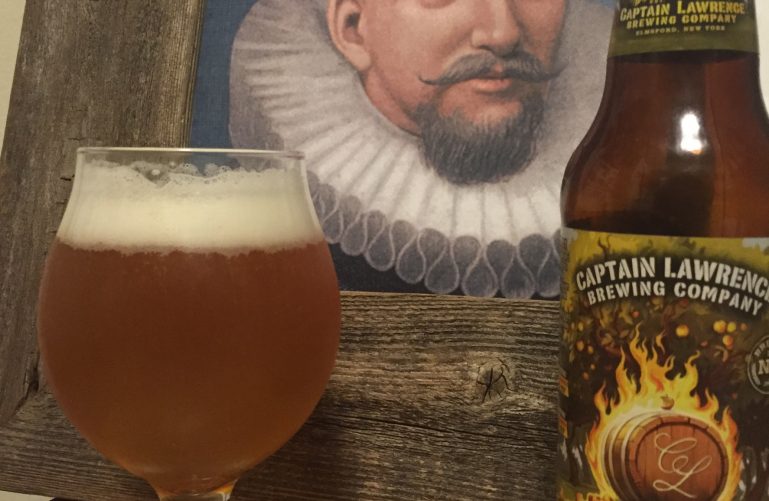
Living in New York, you know the name Henry Hudson. Even if you know nothing else, you know he’s the white dude who first explored the Hudson River, thus nobly bequeathing his name upon it. His parkway is full of cursing commuters during morning or evening rush hour, and his valley (really named more for the river than the man but that’s just semantics) is full of daytrippers from the city who are totally convinced they could become farmers and make the newest artisinal radish butter. What most people don’t know, however, is that Hudson and his son John were set adrift by mutinous crew members and left to die in the bay that now bears his name. Really makes you think twice about passing that rest stop when your passengers ask to use the bathroom.
Hudson’s Early Explorations
Unlike the youth of today who will spend years scrubbing the internet of their drunken escapades and neverending selfies, not much is known about Henry Hudson’s early life. Born around 1565 in England, the first records of Hudson pop up around 1607 when the Muscovy Company of London hired him to search for a Northeast Passage to Asia. Sadly, they weren’t interested in ice, because that was all Hudson found on this trip and a subsequent one the following year.

When his third expedition, funded by the Dutch East India Company, started off just like the others, Hudson decided to shake things up a bit and sailed west to find the fabled Northwest Passage through North America. This third journey would become his most famous due to his exploration of the Hudson River and the surrounding areas. Much to the chagrin of the English, this expedition allowed the Dutch to stake claim to the areas Hudson explored and laid the groundwork for New Amsterdam. Next time you’re wandering through Fishkill, Peekskill, Wallkill or Beaverkill, you can thank Hudson and the Dutch, not some sociopathic cartographer, for their lovely names, because kill is actually Dutch for creek.
An Unfortunate Demise
Hudson’s final journey set out from London in April of 1610 aboard the aptly named Discovery. Officially tasked by the British East India Company to find the Northwest Passage, Hudson and his crew took a northerly route to North America. Sailing through the Hudson Strait, or as Hudson called it the Me Strait, into Hudson Bay, there was initial hope that they had discovered the infamous passage. However, additional exploration of the area soon discounted this belief. After spending a brutal winter in the area around St. James Bay, Hudson decided to continue exploring the area instead of returning to England. His emaciated and miserable crew politely disagreed.
Everyone knows the cliche that history is written by the victors; in this case, history was written by those who survived. The only record of the mutiny comes from the diary of Abacuk Pricket, the ship’s navigator (a phenomenal Final Jeopardy question if I do say so myself). In it, Pricket writes “Wilson the Boatswayne and Henry Greene came to me. . . and told me that they and the rest of their Associates, would shift the Company and turne the Master [and] all the sicke men into the shallop [a small boat] and let them shift [fend] for themselves.” Pricket goes on to write, very conveniently I may add, that he attempted to convince them not to do “so foul a thing,” but his pleas fell on deaf ears. And so, on June 22nd, 1611, nine men, including Hudson and his son John, were placed into the shallop and left to meet their fate in Hudson Bay.

After leaving Hudson to die, eight of the thirteen mutinous crew managed to make it back to England. Wilson and Greene, who received the brunt of the blame for the mutiny thanks to Pricket’s journal, just so happened to die during the journey. While four of the crewmen were ultimately charged with murder, they were acquitted after blaming the whole affair on the deceased crew members. What better way to get away with something than accusing someone who can’t defend themselves? And if I were you, the next time your significant other blames the dog for farting, I’d be a little suspicious.
No one knows what happened to Hudson and the other crewmen but there are plenty of theories ranging from enslavement by Native Americans to their murder on the deck of the Discovery. Most people, though, believe that the group was cast off and died the slow, agonizing death of those left in a vast, mostly uninhabited and desolate place. On the flip side, there are also some Native American oral histories that vaguely mention the appearance of some white guys who became adopted members of the tribe and lived long lives. Kinda like Dances with Wolves, except that their eventual oppression is a few centuries in the future as opposed to a decade.
Craft Beer Pairing: Captain Lawrence Brewing
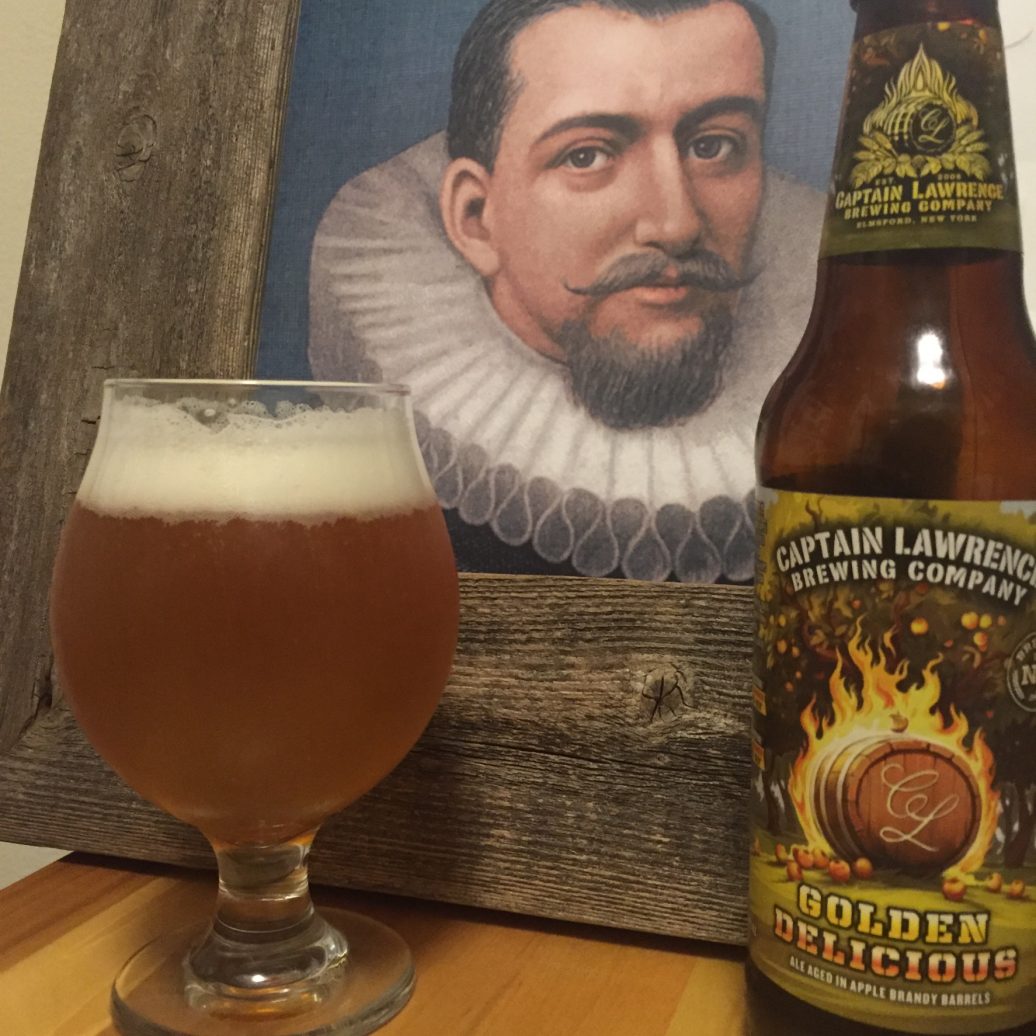
While us historians may not know what happened to Hudson, we do know one thing for certain: beer aged in used liquor barrels will always be delicious. Captain Lawrence Brewing, who I’ve previously written about in my Spring Seasonals post, eschews the typical bourbon barrel and opts for an apple brandy barrel to age their Golden Delicious. The beer continues the trend started by the first European explorers of combining the flavors of America with Europe. A blend between Old World, the tripel style from Belgium, and New World, American hops and brandy barrels, Golden Delicious offers a unique take on an increasingly popular style.
Appropriate to its name, Golden Delicious pours a gorgeous, golden color with a thick, white head and steady carbonation. If you close your eyes and smell it, you can almost pretend that you’re inside an apple brandy barrel: strong notes of apple, a wonderful oakiness and a substantial whiff of alcohol. The taste matches the aroma almost exactly. The booziness is tempered by mellow oak flavors and sweet apples with a touch of citrus. It has a very dry finish with a bit of bitterness remaining on the palate. Super smooth and medium-bodied, Golden Delicious, at 11% ABV, is dangerously easy to drink. A steady warmth flows through your body as you drink, making it a fantastic choice for a damp and chilly night on the water. Well, maybe not literally on the water (sorry Hudson). How about next to the water? Oh and make sure you share it with your friends. Wouldn’t want a mutiny on your hands now would you?
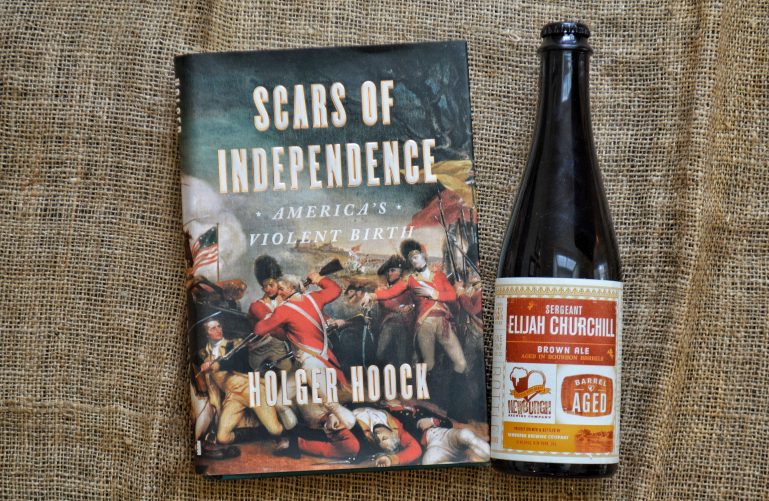
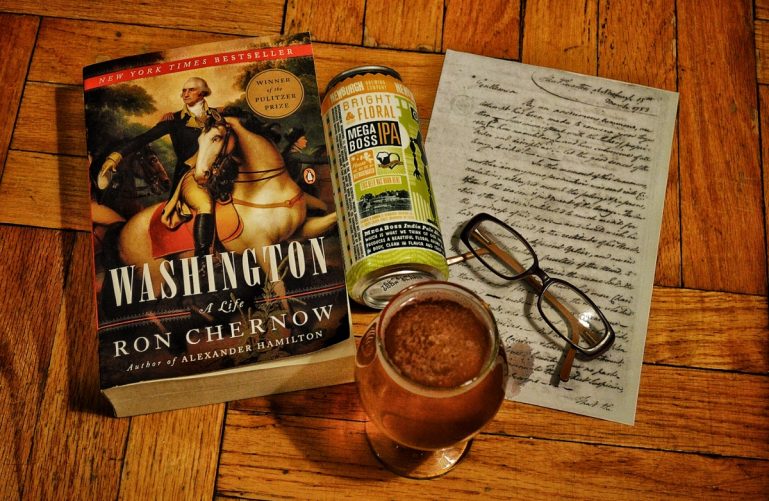
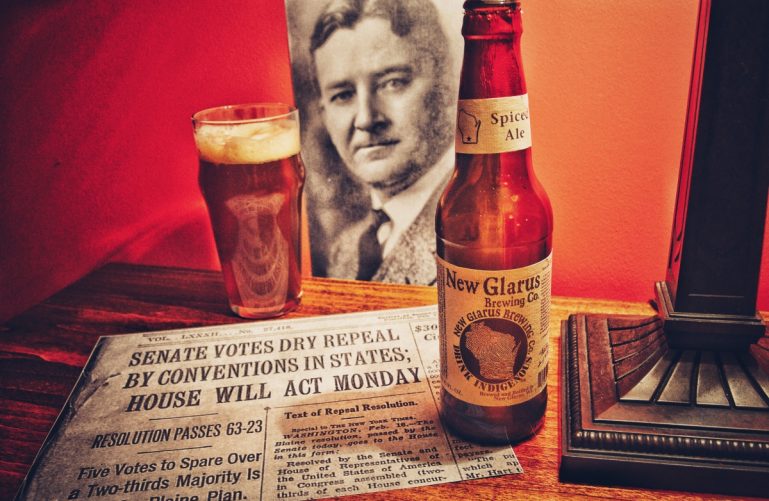
no comments